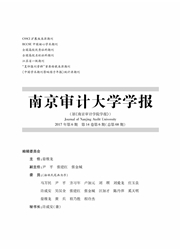

 中文摘要:
中文摘要:
基于新产品的销售分为两期(第一期为预售期,第二期为现货销售期)以及消费者对预售产品具有不确定估价这一假设,研究不确定需求条件下零售商的退货策略,着重关注在不接受预售产品退货策略和接受预售产品退货策略中,哪一种退货策略能够成为零售商的最优退货策略,结果显示:当消费者对预售产品价格高估的可能性较小时,不接受预售产品退货策略与接受预售产品退货策略等效,两者均为零售商的最优退货策略;当消费者对预售产品价格高估价的可能性较大时,不接受预售产品退货策略为零售商的最优退货策略。
 英文摘要:
英文摘要:
Based on the assumptions that the sales of new product are divided into two periods( the first period is the advance selling period,the second period is selling season period or spot selling period) and that the consumers have uncertain evaluation on product,this paper makes a research on the retailer's return policy under the condition of uncertain demand and focuses on which returns policy can become the retailer's optimal returns policy between no returns policy and providing returns policy for the pre-sale products. The results show that if the consumer is less likely to overestimate the product in the advance selling period,no returns policy and providing returns policy are equivalent,and both are the retailer's optimal returns policy. Otherwise,no returns policy is the retailer's optimal returns policy.
 同期刊论文项目
同期刊论文项目
 同项目期刊论文
同项目期刊论文
 期刊信息
期刊信息
